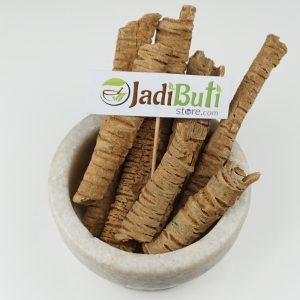Home
Showing 133–144 of 227 results
-
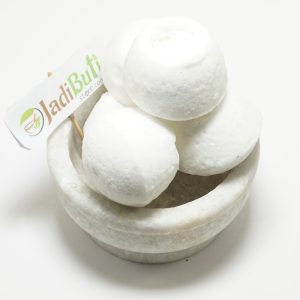
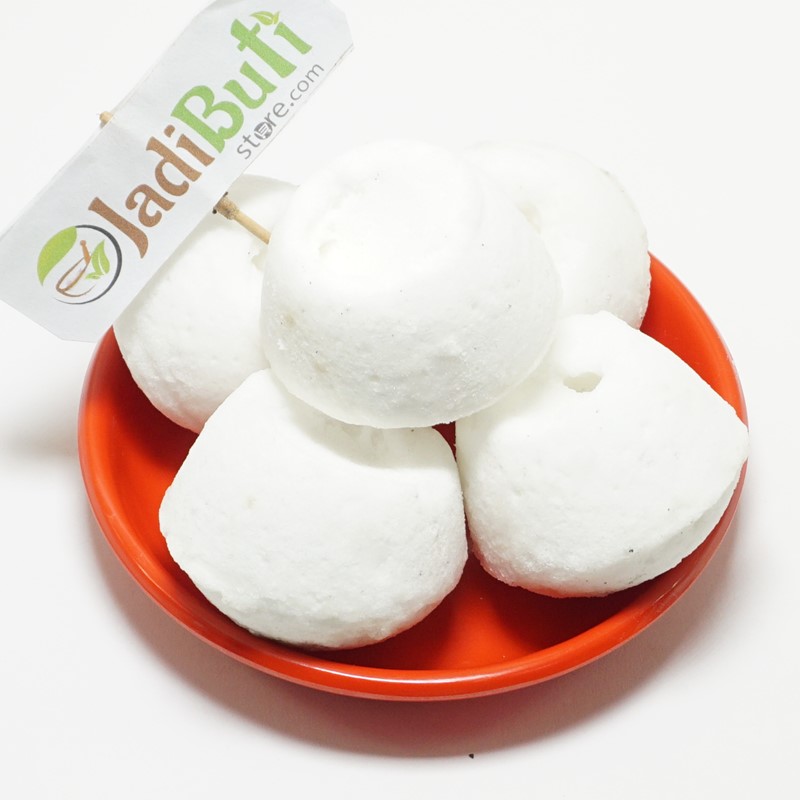
Kunja mishri – कुंजा मिश्री – Mishri balls – Rock candy
₹120.00 – ₹920.00Quick ViewAyurvedic Name Kunja Mishri or Kumbh Shakkar Properties Balances Vata and Pitta doshas, boosts immunity and energy levels, supports respiratory health, promotes healthy digestion and metabolism Nutritional Value Contains calcium, iron, potassium Uses Sweetener in cooking and beverages, used in Ayurvedic medicine for its health benefits Precautions Excessive consumption of any type of sugar can have negative health effects Ayurvedic Benefits :
- Helps to balance Vata and Pitta doshas
- Boosts immunity and energy levels
- Supports respiratory health
- Promotes healthy digestion and metabolism
- Helps to soothe sore throat and cough
-
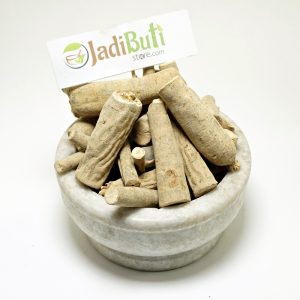
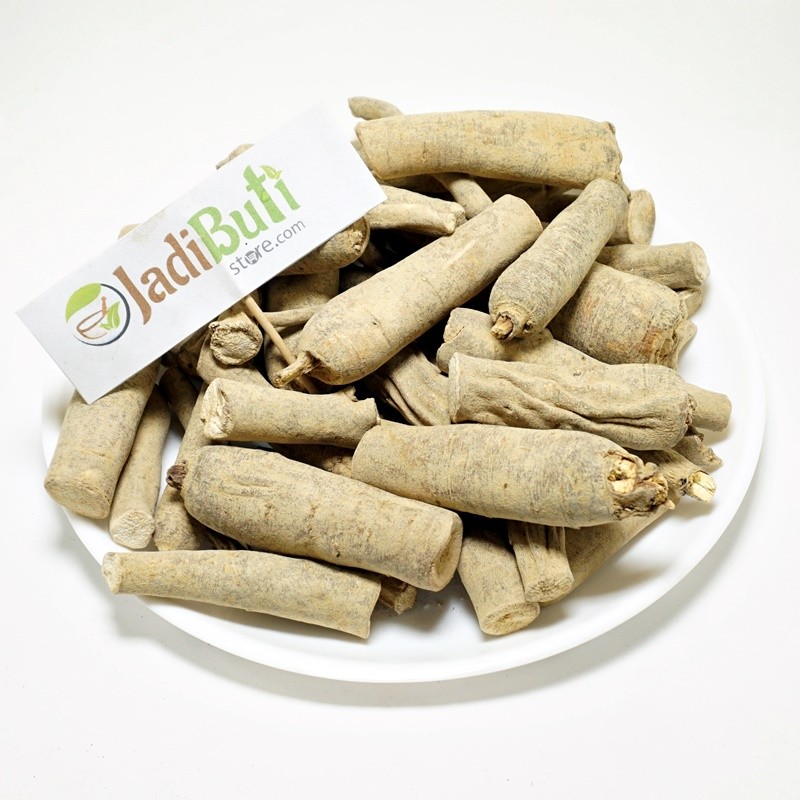
Kuth Meetha – कुठ मीठा – Costus – Saussurea costus
₹220.00 – ₹1,710.00Quick ViewKuth Meetha – कुठ मीठा – Costus – Saussurea costus.
Kuth Meetha Name In Different Languages:
Kuth Meetha in English – Costus root
Kuth Meetha in Hindi – Kuth
Kuth Meetha in Latin – Saussurea costus
Kuth Meetha in Sanskrit – Vapya, Paribhavy
Kuth Meetha in Bengali – Kud
Kuth Meetha in Marathi – Koshth
Kuth Meetha in Gujrati – Kathu upmat
Kuth Meetha in Telugu – Kushtha
Kuth Meetha in Persian – Kust-e-talkh
Castus root is hot in nature, spicy and tasty. It enhances sperm count. If someone breaks castus root and it breaks easily, it should be considered that costus root is pure (natural).
-
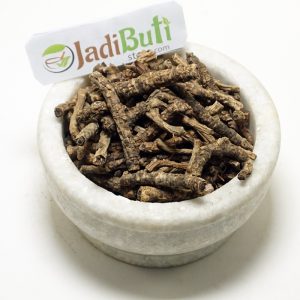
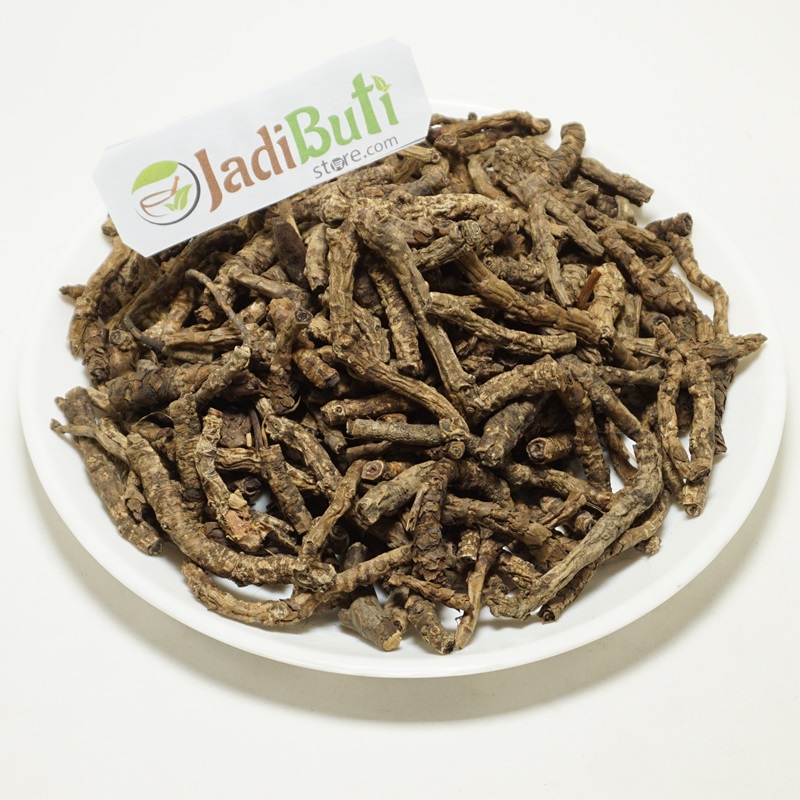
Kutki (Organic) – कुटकी – Gentiana kurroo – Picrorhiza kurroa
₹320.00 – ₹4,450.00Quick ViewKutki | Scientific Name: Picrorhiza kurroa
Plant Family: Scrophulariaceae | Parts Used: Roots, Rhizomes
Taste (Rasa) Energy (Virya) Dosha Effect Bitter (Tikta) Heating (Ushna) Balances Pitta and Kapha Pungent (Katu) May increase Vata if used in excess Active Compounds Function Iridoid glycosides (kutkoside, picroside) Hepatoprotective, anti-inflammatory Kutkine Antioxidant Apocynin Anti-inflammatory Cucurbitacin Anticancer, immunomodulatory -
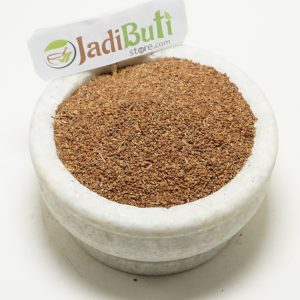
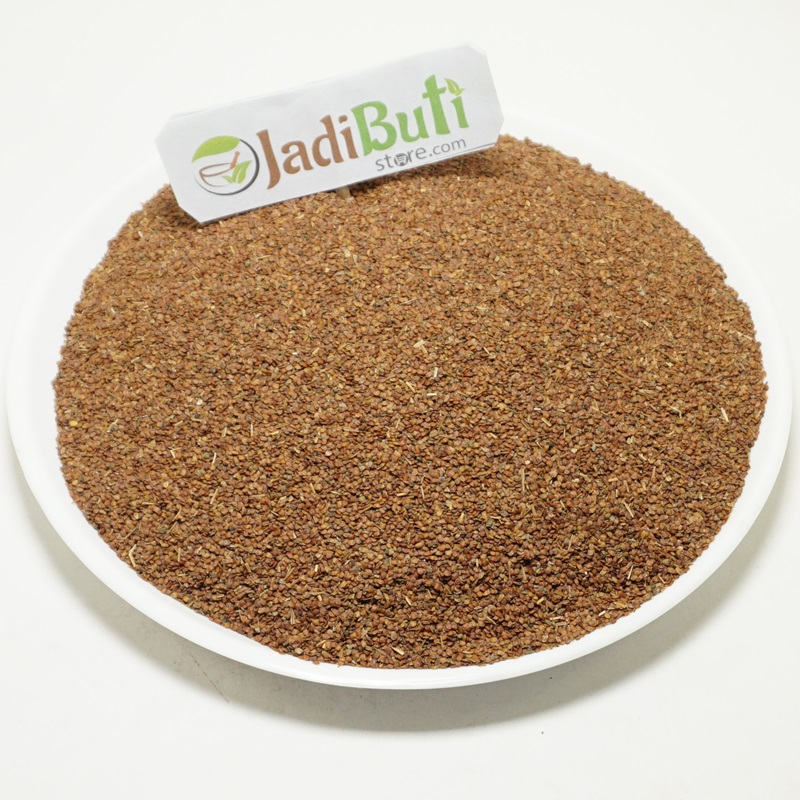
Lajwanti – लाजवंती – Sensitive Plant – Mimosa pudica
₹160.00 – ₹1,225.00Quick ViewLajwanti seeds | Scientific name: Mimosa pudica
Ayurvedic properties:
- Anti-inflammatory
- Digestive
- Respiratory
- Skin health
- Diuretic
- Nervous system health
- Anti-diabetic
- Cardiovascular health
- Immune system health
- Menstrual health
- Anti-cancer
- Wound healing
Ayurvedic Property Classification Rasa (taste) Bitter (tikta) and astringent (kashaya) Virya (energy) Cooling (shita) Vipaka (post-digestive effect) Pungent (katu) Guna (properties) Light (laghu), dry (ruksha), and sharp (tikshna) -
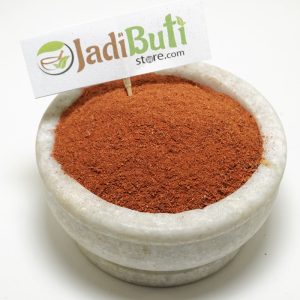
Lal Chandan Powder – लाल चंदन – Red Sandalwood Powder – Pterocarpus santalinus
₹80.00 – ₹845.00Quick ViewRed sandalwood powder has been used for centuries in traditional Ayurvedic medicine as a natural remedy for various health and beauty conditions. Red sandalwood powder has anti-inflammatory, antiseptic, and astringent properties, making it a popular ingredient in skincare, hair care, and medicinal products. It can help to soothe and brighten the skin, reduce acne and dark spots, promote hair growth, and relieve sunburn and inflammatory conditions. Red sandalwood powder is also used in aromatherapy and meditation practices for its calming and grounding effects on the mind. It is often combined with other natural ingredients, such as turmeric, honey, and milk, to create face masks and other skincare products. Red sandalwood powder is considered safe and gentle for most skin types.
-
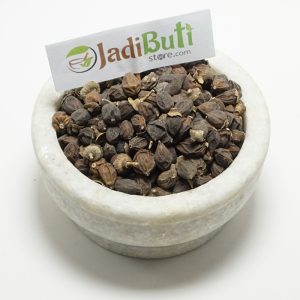
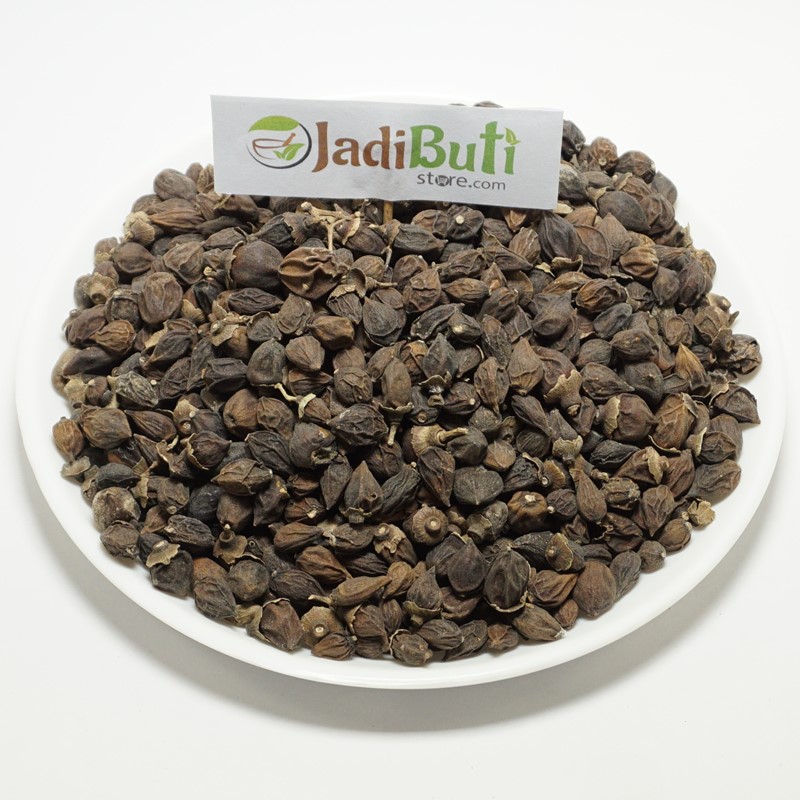
Lasoda spistan – लसोड़ा सपिस्तन – Sebesten – Cordia myxa
₹120.00 – ₹920.00Quick ViewOur Lasoda fruit is carefully handpicked and Natural-dried to ensure that it retains its natural flavor and nutritional value. It has a chewy texture and a hard seed in the center.
Lasoda fruit is believed to promote digestive health, respiratory health, anti-inflammatory properties, immunity boosting, and liver & heart health. It is also believed to have anti-aging properties and is used to promote wound healing and nervous system health.
Our Lasoda fruit is a valuable ingredient in natural remedies and can be used to make pickles and chutneys in Indian cuisine. It is also a great addition to smoothies, juices, and salads.
- Rasa (Taste): Lasoda fruit is believed to have a sour taste, which is known to stimulate digestion and help balance the doshas.
- Virya (Potency): Lasoda fruit is believed to have a cooling potency, which is helpful in reducing inflammation and calming Pitta dosha.
- Vipaka (Post-digestive effect): Lasoda fruit is believed to have a sweet post-digestive effect, which nourishes the body and helps to balance Vata dosha.
- Dosha effects: Lasoda fruit is believed to balance all three doshas, but especially Pitta and Vata doshas.
- Gunas (Qualities): Lasoda fruit is believed to have the following qualities – light, dry, and rough. These qualities are believed to be helpful in promoting digestion and reducing excess Kapha dosha.
- Prabhava (Special action): Lasoda fruit is believed to have a special action in Ayurveda as it is used to promote respiratory health, wound healing, and liver health.
Overall, the Ayurvedic properties of lasoda fruit make it a valuable ingredient in promoting overall health and well-being in Ayurvedic medicine.
-
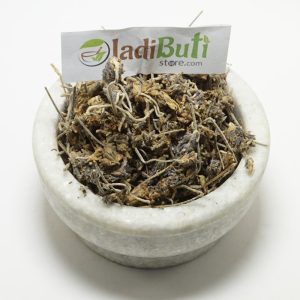
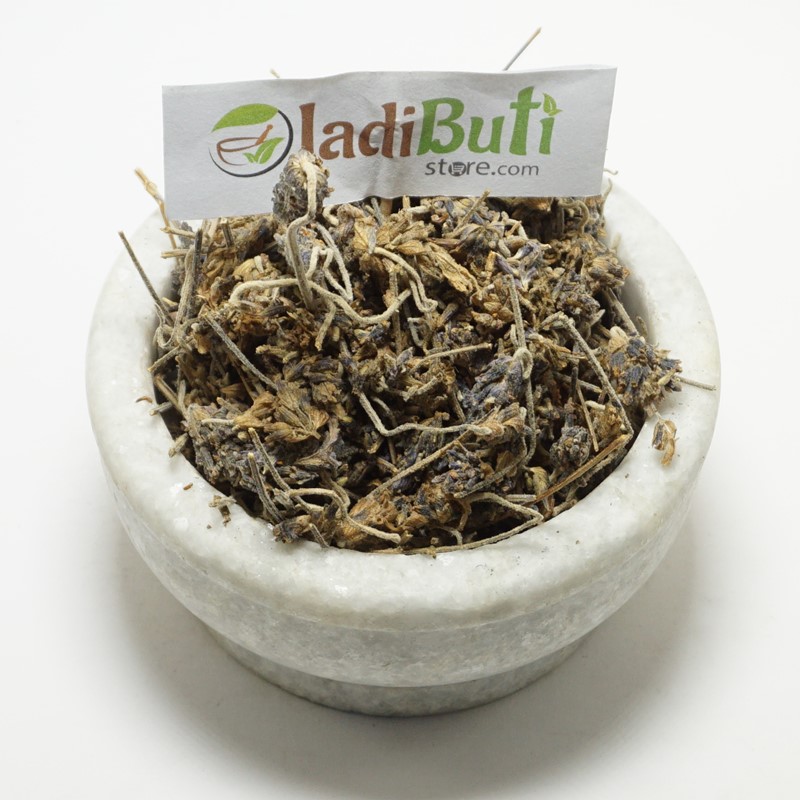
Lavender -UsteKhadoos – उस्तेखादूस – Arabian Lavender – Lavandula stoechas
₹170.00 – ₹1,785.00Quick ViewCommon name: Lavender, Ustukhuddus, Scientific name: Lavandula angustifolia
Parts used: Flowers, oil (These are dried flower)
Ayurvedic properties of lavender:
- Rasa (taste): Lavender has a bitter and pungent taste.
- Virya (energy): Lavender has a cooling or calming energy.
- Vipaka (post-digestive effect): Lavender has a pungent post-digestive effect.
- Guna (quality): Lavender has light and dry qualities.
- Dosha (effect on doshas): Lavender can balance pitta dosha, but may aggravate vata dosha in excess.
- Prabhava (special quality): Lavender is known for its calming and soothing effect on the mind and body.
Ayurvedic benefits of Lavender:
- Relaxation: Lavender is known for its calming and relaxing properties. It can help reduce stress, anxiety, and promote relaxation.
- Skin health: Lavender oil can help soothe and heal various skin conditions such as acne, eczema, and psoriasis. It has anti-inflammatory and antimicrobial properties that can help reduce inflammation and prevent infections.
- Sleep: Lavender can help promote sleep and improve the quality of sleep. It can also help with conditions such as insomnia and sleep apnea.
- Respiratory health: Lavender can help improve respiratory health and relieve conditions such as cough, cold, and asthma.
- Headache: Lavender can help relieve headaches and migraines. It has a soothing effect on the nervous system and can help reduce tension and pain.
- Digestive health: Lavender can help improve digestive health and reduce conditions such as bloating, gas, and nausea.
- Hormonal balance: Lavender can help regulate hormonal balance and reduce symptoms of PMS and menopause.
-
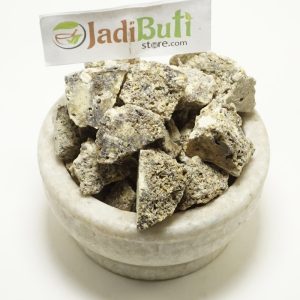
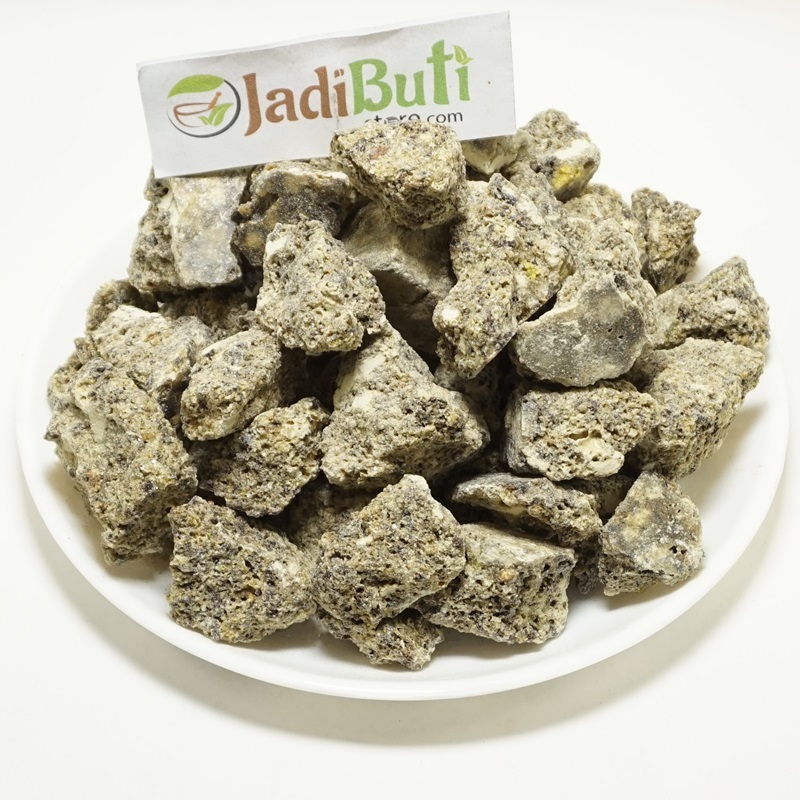
Loban (premium) – लोबान – Benzyl
₹170.00 – ₹1,300.00Quick ViewLoban is a type of resin that is obtained from the Boswellia tree. It is also known as frankincense or olibanum. In Ayurveda, loban is considered a potent herb with various health benefits. Here are some Ayurvedic properties and benefits of loban:
Ayurvedic Properties:
- Rasa (Taste): Pungent, Bitter, Astringent
- Virya (Energy): Heating
- Vipaka (Post-Digestive Effect): Pungent
- Guna (Qualities): Light, Dry
Ayurvedic Benefits:
- Respiratory Health: Loban has anti-inflammatory properties that can help to relieve respiratory conditions like asthma, bronchitis, and colds.
- Digestive Health: Loban is believed to stimulate digestion and improve appetite.
- Anti-inflammatory Properties: Loban has powerful anti-inflammatory properties that can help to reduce inflammation and pain in the body.
- Antiseptic Properties: Loban has antiseptic properties that can help to prevent infections and promote healing.
- Anxiety and Depression: The aroma of loban has a calming effect on the mind and can help to alleviate anxiety and depression.
- Spiritual Practice: Loban is often used in spiritual practices and rituals to purify the environment and promote a sense of peace and tranquility.
-


long (Organic) – लौंग – Clove – Syzygium aromaticum
₹280.00 – ₹2,300.00Quick ViewAyurvedic classification of clove :
Ayurvedic Property Ayurvedic Use Rasa (Taste) Katu (Pungent), Tikta (Bitter), Madhura (Sweet) Guna (Quality) Laghu (Light), Teekshna (Sharp), Sara (Unctuous), Ruksha (Dry) Virya (Potency) Ushna (Hot) Vipaka (Post-Digestive Taste) Katu (Pungent) Dosha (Effect on Humors) Balances Kapha and Vata Doshas, may aggravate Pitta Dosha in excess Dhatu (Tissue) Plasma, Blood, Muscle, Fat Srotas (Channel) Digestive, Respiratory, Circulatory Action Analgesic, Anti-inflammatory, Antioxidant, Anti-microbial, Carminative, Expectorant, Immune-stimulant, Warming Active Compound Description Health Benefits Eugenol A phenolic compound with a strong aroma and flavor. Antioxidant, anti-inflammatory, analgesic, and anti-microbial properties. May help improve dental health, reduce inflammation and pain, and support overall immune function. Flavonoids A group of plant pigments with antioxidant and anti-inflammatory properties. May help reduce the risk of chronic diseases such as heart disease and cancer, and support overall immune function. Tannins A type of polyphenol with astringent properties. May help reduce inflammation and pain, and support healthy digestion. Sesquiterpenes A group of aromatic compounds with anti-inflammatory and anti-microbial properties. May help reduce inflammation, support healthy immune function, and protect against infections. -


Mahua(Mahuya) – महुआ – Pongamia – Madhuca indica
₹90.00 – ₹690.00Quick ViewMahua | Botanical Name: Madhuca longifolia
Other Names: Indian butter tree, Madhuca, Mahwa
Ayurvedic Properties of Mahua Description Rasa (Taste) Sweet, Bitter Virya (Energy) Cooling Vipaka (Post-Digestive Effect) Sweet Guna (Qualities) Light, Dry Ayurvedic Benefits:
- Digestive health
- Respiratory health
- Anti-inflammatory properties
- Skin health
- Antioxidant properties
- Immunity boosting
- Antimicrobial properties
- Anti-diabetic properties
- Cardiovascular health
- Nervous system health
- Anticancer properties
- Wound healing
- Reproductive health
-


Majith – Manjistha – Indian Madder – Rubia cordifolia
₹140.00 – ₹1,170.00Quick ViewManjistha is classified as a bitter, astringent, sweet, and cooling herb. It is believed to have a balancing effect on the Pitta and Kapha doshas, while increasing Vata dosha.
.
Ayurvedic classification of Manjistha (Rubia cordifolia):
Ayurvedic Classification Description Rasa (taste) Astringent, bitter, and sweet Guna (qualities) Heavy, dry, and cold Virya (potency) Cooling Vipaka (post-digestive effect) Sweet Dosha effect Pacifies Pitta and Kapha doshas Karma (actions) Blood purifier, detoxifying, diuretic, anti-inflammatory, and antioxidant Dhatu (tissue) affinity Works primarily on the blood and lymphatic tissues Srotas (channel) affinity Works primarily on the circulatory and lymphatic channels Prabhava (special effect) Purifies and cools the blood, supports healthy skin, and promotes overall detoxification Active compounds and their benefits found in manjistha (Rubia cordifolia):
Active Compound Benefits Anthraquinones (alizarin, purpurin, and munjistin) Anti-inflammatory, antioxidant, and antimicrobial properties Tannins Anti-inflammatory, antioxidant, and wound-healing properties Flavonoids (quercetin, kaempferol, and rutin) Anti-inflammatory, antioxidant, and anti-cancer properties Xanthones Anti-inflammatory, antioxidant, and anti-cancer properties Glycosides Cardio-protective, hepatoprotective, and immune-boosting properties Betaine Liver-protective and anti-inflammatory properties

